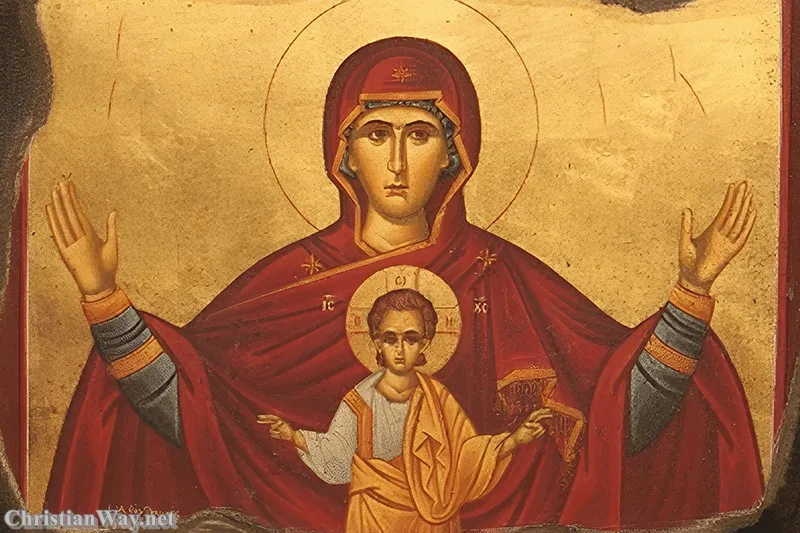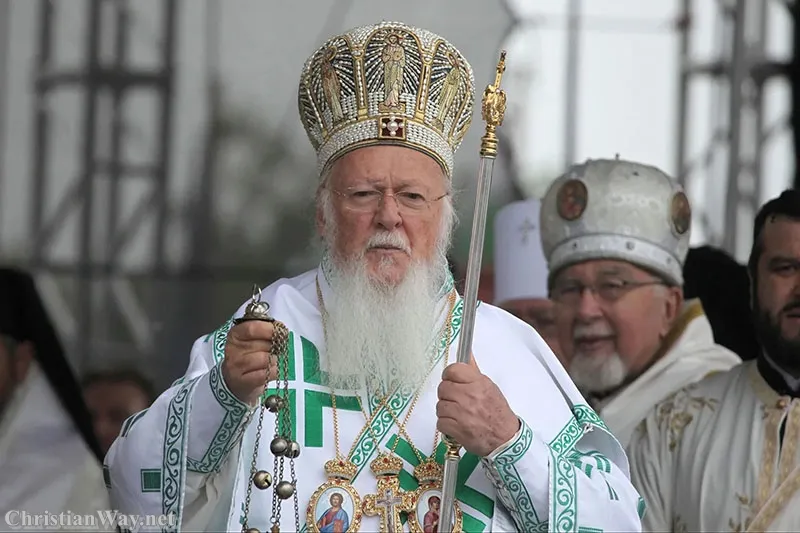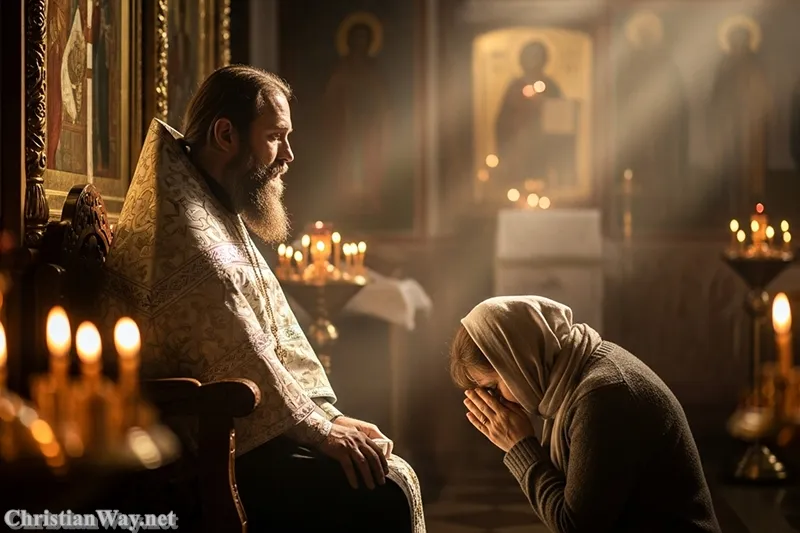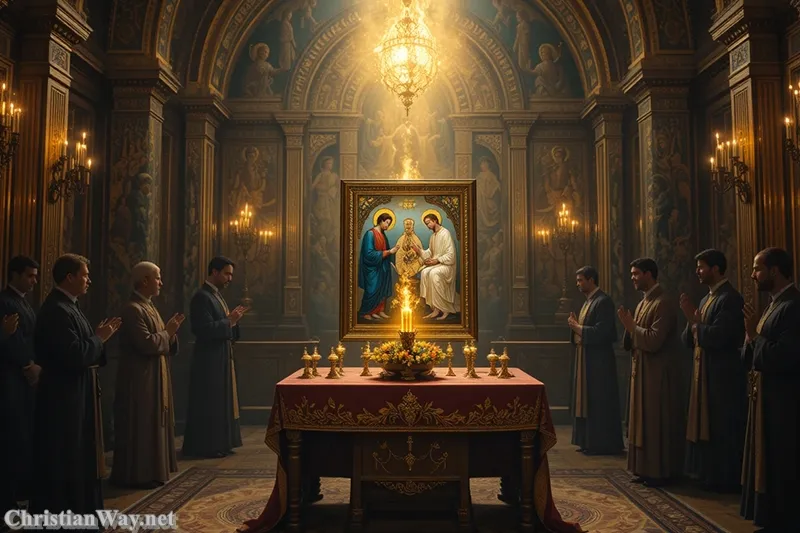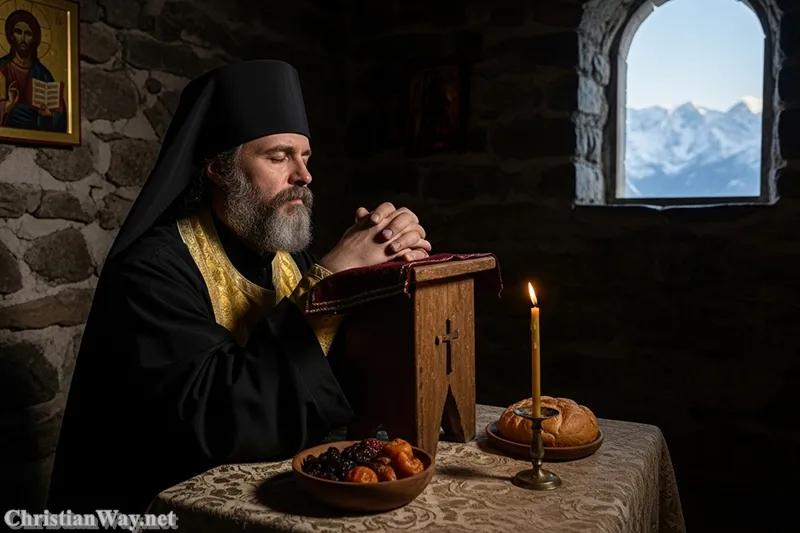Dear brothers and sisters in Christ,
Every human heart longs for life — not merely to exist, but to truly live. Deep within, there is a yearning to return to the source from which we came: the living God. The Orthodox Church has always understood salvation not simply as a legal pardon from sin, but as a profound transformation — a healing and sanctification that restores the human person to communion with God.
In the Orthodox vision, salvation is theosis, which means “divinization” or “deification.” It is not that we become gods by nature, but that we are made participants in the divine life by grace. As Saint Athanasius of Alexandria famously wrote: “God became man so that man might become god.” This statement expresses the heart of Orthodox spirituality — that the purpose of the Incarnation, the Cross, and the Resurrection is not only to forgive our sins but to make us sharers in the divine glory that shines from the face of Christ.
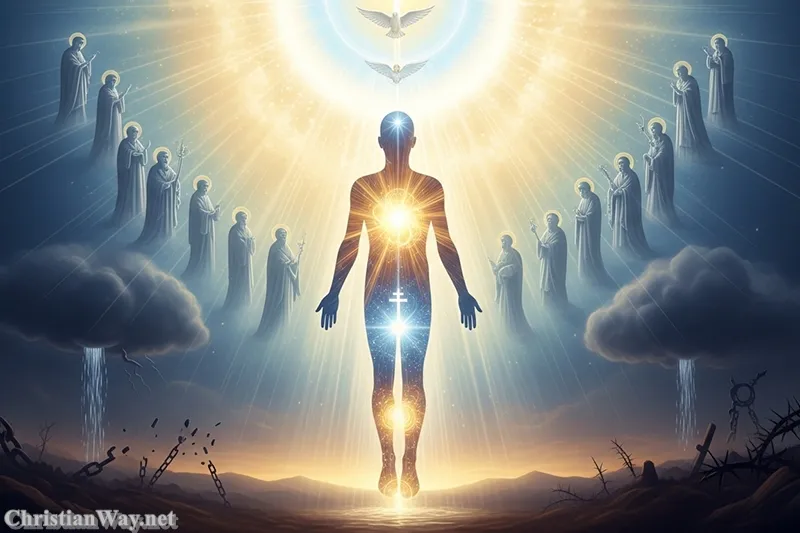
Let us walk slowly through this mystery — salvation as understood in the Orthodox Church — and see how it unfolds in the life of the believer, through Christ, the Spirit, and the Church.
The Orthodox Understanding of Salvation: More than Forgiveness
In many traditions, salvation is often spoken of in terms of justice — guilt, punishment, and pardon. The Orthodox Church does not deny the reality of sin or the need for forgiveness, but it looks deeper, seeing sin as a sickness of the soul rather than merely a crime before a judge. Humanity, created in the image of God, has become wounded and disfigured by sin; the relationship with God has been broken, and the likeness has been obscured.
Sin as Illness, Salvation as Healing
The Orthodox Fathers describe sin as a kind of spiritual disease. It is not only the wrong we do but the brokenness we carry — a distortion of our nature that leads to darkness, pride, and separation. In this light, salvation is not primarily a courtroom verdict but a process of healing.
Christ is not only our Savior but our Physician. In His coming, He takes upon Himself our sickness so that He might heal it from within. As the Prophet Isaiah foretold, “By His wounds we are healed” (Isaiah 53:5).
This is why the sacraments of the Church are often called “the medicines of immortality.” Through them, the grace of God flows into the wounded soul, restoring what has been lost.
Theosis: Becoming Partakers of the Divine Nature
The word theosis (θέωσις) lies at the heart of Orthodox theology. It expresses the goal of all Christian life — union with God.
Saint Peter writes, “He has granted to us His precious and very great promises, so that through them you may become partakers of the divine nature” (2 Peter 1:4). This is not poetic exaggeration; it is the very essence of salvation. Theosis means that, by grace, we are drawn into God’s life — not becoming divine by essence, but by participation.
The Incarnation: The Bridge Between God and Man
The possibility of theosis exists only because of the Incarnation. When the Son of God took flesh, He united divine and human nature in His own Person. He did not merely descend to visit humanity — He took humanity into Himself. In doing so, He restored the image of God within us and opened the path for our participation in divine life.
As Saint Gregory Nazianzen said: “What is not assumed is not healed.” Christ assumed our full humanity — body, soul, and will — in order to heal and divinize every aspect of it.
The Holy Spirit: The Power of Transformation
The work of theosis is accomplished in us by the Holy Spirit. It is through the indwelling Spirit that we are made temples of God, transformed from within by divine energy. The Spirit illumines, sanctifies, and strengthens us, conforming us to the image of Christ.
This transformation is not instant, nor is it forced. It is a lifelong journey, a synergy — a cooperation between divine grace and human freedom. God does not save us without us. We must open our hearts, repent, and participate in the life of grace.
Salvation as Synergy: God’s Grace and Human Freedom
Orthodox theology beautifully balances divine initiative and human response. Salvation is entirely the work of God’s grace — yet we are called to cooperate with that grace in faith and love.
Saint Paul expresses this mystery clearly: “Work out your own salvation with fear and trembling; for it is God who works in you, both to will and to work for His good pleasure” (Philippians 2:12–13).
This cooperation — or synergy — means that salvation is not passive. We must respond to God’s invitation through repentance, prayer, fasting, charity, and the sacraments. Each act of love and obedience becomes a step into the divine life.
Repentance as the Beginning of Theosis
The path of theosis begins with metanoia — a change of mind and heart. Repentance is not mere regret but a turning toward God, a reorientation of the entire being toward the light. The Orthodox spiritual life is therefore a continual return — a movement from darkness into the presence of the living God.
The Church, through her liturgy, fasting seasons, and daily prayers, provides the rhythm and structure that make this transformation possible.
The Role of the Church in Salvation
In Orthodox understanding, salvation is not an individual affair. It happens within the Body of Christ — the Church.
The Church is not simply an institution or community of believers; she is the living extension of Christ’s Incarnation in time and space. Her sacraments are not mere symbols but real encounters with divine grace. Through Baptism, we die and rise with Christ; through Chrismation, we receive the Holy Spirit; through the Eucharist, we are nourished with the very Body and Blood of Christ.
Each of these sacraments is a movement deeper into the divine life — a participation in the mystery of theosis.
The Eucharist: Communion with the Living God
The Holy Eucharist is the heart of the Orthodox vision of salvation. It is not simply a memorial but a real communion — koinonia — with the living Christ.
In the Divine Liturgy, heaven and earth meet. The bread and wine are changed by the Holy Spirit into the Body and Blood of the Lord, and we who receive them are changed as well. As Saint Nicholas Cabasilas wrote: “The life in Christ is life in the sacraments.”
By partaking of the Eucharist, we are united not only with Christ but with one another, becoming one Body in love and truth.
Salvation as Transformation of the Whole Person
Theosis embraces the entire human being — body, mind, and soul. It is not an escape from the world or the body, but a sanctification of both.
The saints are the living proof of this mystery. In them, we see humanity fully alive, shining with divine light. Their faces, often radiant in icons, reveal what it means to be restored in the image and likeness of God.
The Light of Tabor
At the Transfiguration, the disciples saw the uncreated light of Christ — the divine glory that shines eternally from His humanity. This light is not metaphorical; it is the very energy of God, which the saints behold even now.
The Orthodox tradition of hesychasm — the prayer of stillness — seeks precisely this experience: the vision of God’s uncreated light through purity of heart and unceasing prayer.
As Saint Gregory Palamas taught, through grace we truly participate in God’s energies while His essence remains beyond comprehension. This participation is the reality of theosis: God remains God, yet draws us into His life and light.
The Goal of Salvation: Eternal Communion
For the Orthodox Church, heaven is not merely a place, nor hell simply a punishment. Both are conditions of relationship with God. To the purified heart, the presence of God is bliss; to the unrepentant, the same light becomes fire.
Thus, salvation is eternal communion — living forever in the love and light of the Holy Trinity. The more we open ourselves to God in this life, the more we will be capable of receiving His glory in the next.
Living the Life of Theosis Today
To speak of theosis might sound mystical or distant, yet it touches the smallest moments of daily life. Each act of love, patience, and forgiveness participates in divine life. When we pray, when we fast, when we serve others, when we forgive — we become more like God, whose essence is love.
Saint Seraphim of Sarov said, “Acquire the Spirit of peace, and thousands around you will be saved.” This peace — born of grace and humility — is the fruit of a soul that has begun to partake of divine light.
In our families, workplaces, and parishes, we are invited to live this mystery. Theosis is not reserved for monks and saints alone; it is the destiny of every baptized Christian.
Reflect and Pray
Beloved in Christ, salvation in the Orthodox tradition is not a transaction but a transformation — not a one-time event but a lifelong journey into the infinite love of God. It is a mystery of union, of grace, of participation. Through Christ’s Incarnation, Death, and Resurrection, the path to divine life has been opened to every human heart.
To live this truth is to live in prayer, humility, and love — to let the Spirit shape our hearts until they reflect the beauty of Christ Himself.
Let us pray:
O Lord Jesus Christ, You who became man for our sake,
heal the wounds of our hearts, illumine our darkness,
and draw us into the light of Your divine life.
May we live each day as children of Your kingdom,
becoming by grace what You are by nature — love itself.
Amen.
— Fr. John Matthew, for Christian Way
